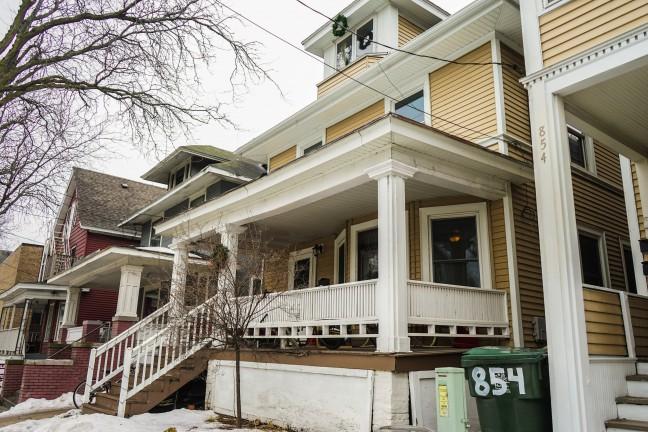With Wisconsin’s rising prescription drug and opioid problem, one legislator is looking to create change and help drug addicts, alcoholics and people with co-occurring mental illnesses through the development of sober housing.
Rep. Melissa Sargent, D-Madison, introduced a bill that would require Wisconsin’s Department of Health Services to provide initial funding for the development and expansion of high quality and affordable sober housing for recovering alcoholics, drug addicts and those with co-occurring mental illness, Sargent said. Revenue from rent for the housing will fund further development of sober housing in the state, Sargent said.
“Everyone in their lives has been touched by someone who has suffered from addiction whether it’s themselves or someone that they love,” Sargent said. “This is very important investment that won’t take a lot of money for the state of Wisconsin, but will in fact save lives and increase prosperity for Wisconsin.”
Prescription drugs cause more deaths than breast cancer, car crashes in state
After treatment, most individuals recovering from alcoholism, drug addiction and those with co-occurring mental illnesses are not fully ready to go back into the community, Sargent said. Sober housing provides them with everything they would need, from beds to treatments and support programs. She said the legislation has received strong support from people all around Wisconsin and hopes legislators will respond this way as well.
Sober living is a vital factor for people recovering from substance abuse, Lori Cross Schotten, Wisconsin United We CAN spokesperson, said. People typically undergo treatment for two to four weeks based on what their insurance covers. After the treatment, individuals require a safe and secure environment to help maintain their sobriety, she said.
“There is so much alcohol around; we have a bar on almost every corner,” Cross Schotten said. “A lot of times people find moving into a sober house, living with people also in recovery, to be the additional support, their safety net, to ease back into the real world.”
Joseph Glass, University of Wisconsin School of Social Work assistant professor, said when an individual begins the recovery process, having a positive home and social environment play a key role in making the process successful. He said sober houses allow individuals to be around others who are like them and all these individuals are committed to achieving the same goal.
It’s ‘our’ problem: The growing heroin epidemic across Wisconsin
Glass said if recovering individuals are not returned to the right kind of environment, they are susceptible to a relapse. This risk increases if they are exposed to an environment with easy access to substances and people who might encourage them to take the substances again.
“Sober living houses, while not extensively studied in terms of effectiveness, is a clear recovery movement that is far ahead of science,” Glass said. “People who go into such recovery housing are very positive about the experiences they have had.”
Most sober living houses have a house manager who facilitates discussion and listens to the residents’ concerns, Cross Schotten said. Sober living is mainly a self-governed initiative where there are rules to be obeyed and everybody has to have a job to pay their rent or continue their education, she said.
Cross Schotten said there are very few sober living options for men coming out of treatment in certain areas of Wisconsin. There are some treatment programs that allow people to live in sober housing upon completion. But Cross Schotten said there is a need for funding and support for more of such housing in the state, Cross Schotten said.
Dealing with family problems caused by addiction can also influence an individual’s recovery process, Cross Schotten said. She noted many children suffering from addiction steal from their families and bring drugs into the house. It takes time to rebuild that trust, and sober housing can help in doing so.
“A safe place is required by individuals to rebuild their lives while at the same time have an opportunity to repair relationships,” Cross Schotten said.
The bill is currently being circulated for co-sponsorship.

















